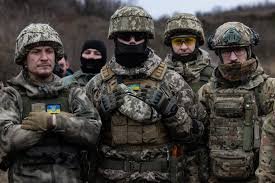Call by the World Amazigh Congress to Defend Amazigh Identity Against Racism and Hate Speech in North Africa

The World Amazigh Congress expresses its deep concern over the growing wave of racist and inciting rhetoric targeting the Amazigh (Berber) identity, along with the increasing number of offensive and denialist statements undermining a deeply rooted cultural and historical heritage in North Africa. Outdated narratives continue to associate Amazigh identity with Zionism and foreign intelligence services, in an effort to discredit those who prioritize their national causes over foreign conflicts.
A recent and dangerous example came from a representative of the Algerian military regime, who appeared on an Emirati television channel and delivered direct incitement and absurd accusations against Amazighs and the Amazigh identity in Algeria. Such statements pose a real threat to the cohesion of the Algerian people in all their linguistic and cultural diversity. These declarations contradict the Algerian Constitution, which recognizes Tamazight as a national and official language, and they undermine the achievements of the Amazigh cause gained through decades of struggle.
Particularly alarming is that these statements were made by someone presented as an “academic”, reopening the wounds of Algeria’s civil war and endangering national unity. The Congress urges the relevant authorities to act swiftly to stop this racist and inflammatory rhetoric.
In a similar context, the former head of the Moroccan government and leader of a political party that led two governments after the 2011 Constitution, deliberately delayed for nine years the enactment of the organic law regarding the official status of the Amazigh language. He also repeatedly attacked the language and the Amazigh people using vulgar expressions and offensive terms against Moroccans who defend national priorities over foreign agendas. Such behavior reveals a cultural and identity alienation, and a blind ideological submission to the East at the expense of national values.
These types of statements—and the level of hostility they reflect—show that certain ideological currents still rely on outdated methods and absurd accusations to target the Amazigh identity and demonize Amazigh people, in service of failed ideological agendas that no longer fit within today’s growing national awareness and sense of belonging.
In response, the World Amazigh Congress raises the alarm and calls for firm opposition to all forms of discrimination and hate speech against the Amazigh people and their identity. It urges the peoples of North Africa to unite and show solidarity in defense of the Amazigh cause, which is a shared struggle for all the peoples of Tamazgha (the Greater Maghreb), and to stand against voices that promote ethnic hatred and civil conflict, in violation of constitutions, national laws, and international agreements.
The Congress also reiterates its appeal to the United Nations, the European Union, and the African Union to intervene and stop the ethnic cleansing and genocide being perpetrated against the people of Azawad by the Malian army and Russian Wagner mercenaries.
Furthermore, it calls on the Libyan authorities to ensure the inclusion of Amazigh representatives in the political decision-making process and in state institutions, and to recognize the Amazigh language in the upcoming constitution—just as Morocco and Algeria have already done.
Finally, the World Amazigh Congress calls on all activists and Amazigh organizations across North Africa and the diaspora to intensify their efforts, protect the gains already achieved, and stand up against anyone who incites hatred toward Amazigh identity and people.
Signed by:
Rachid Raha, President of the World Amazigh Congress
www.amamazigh.org





